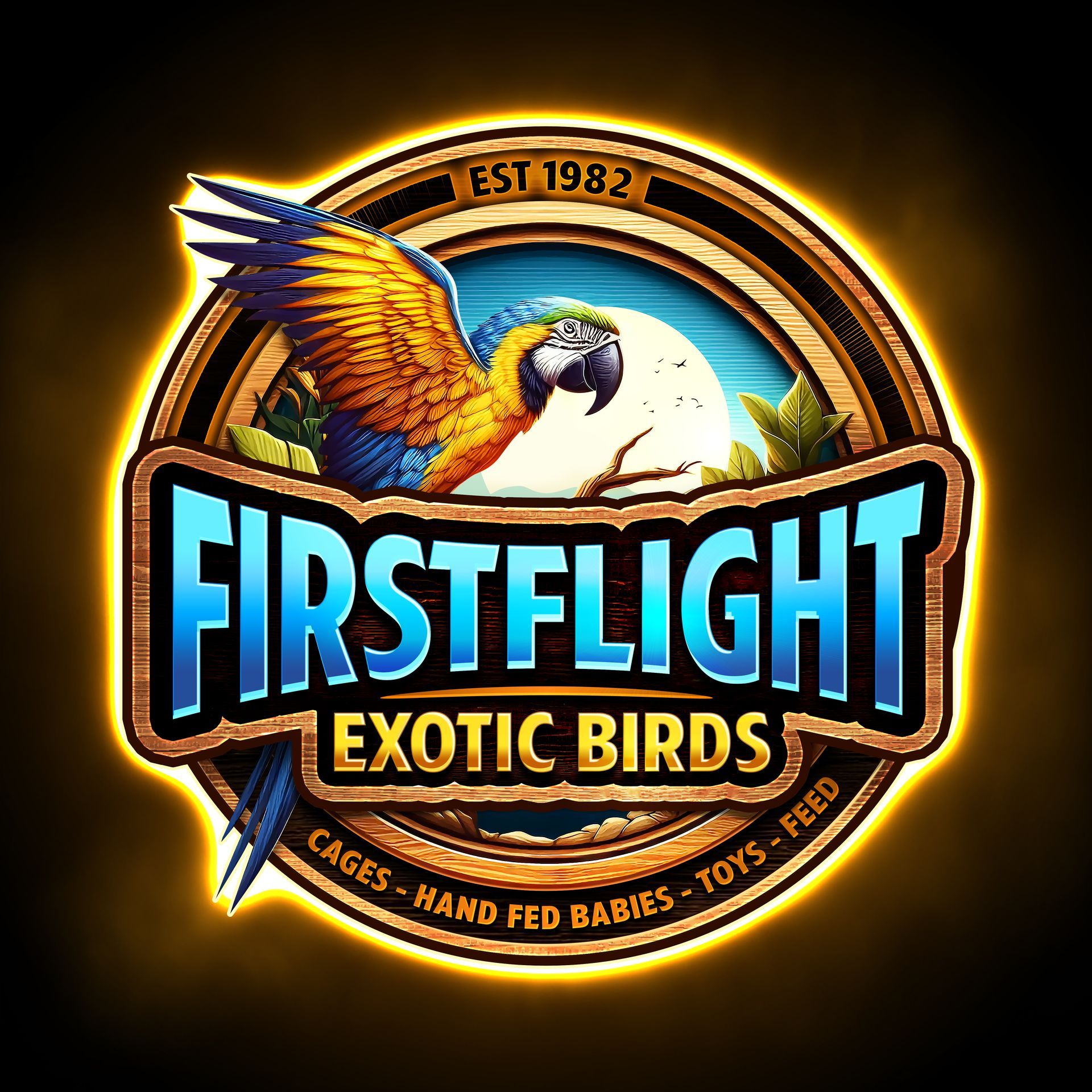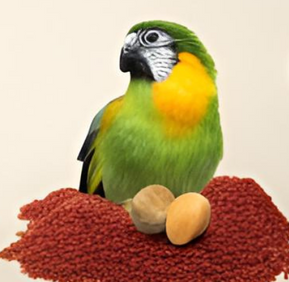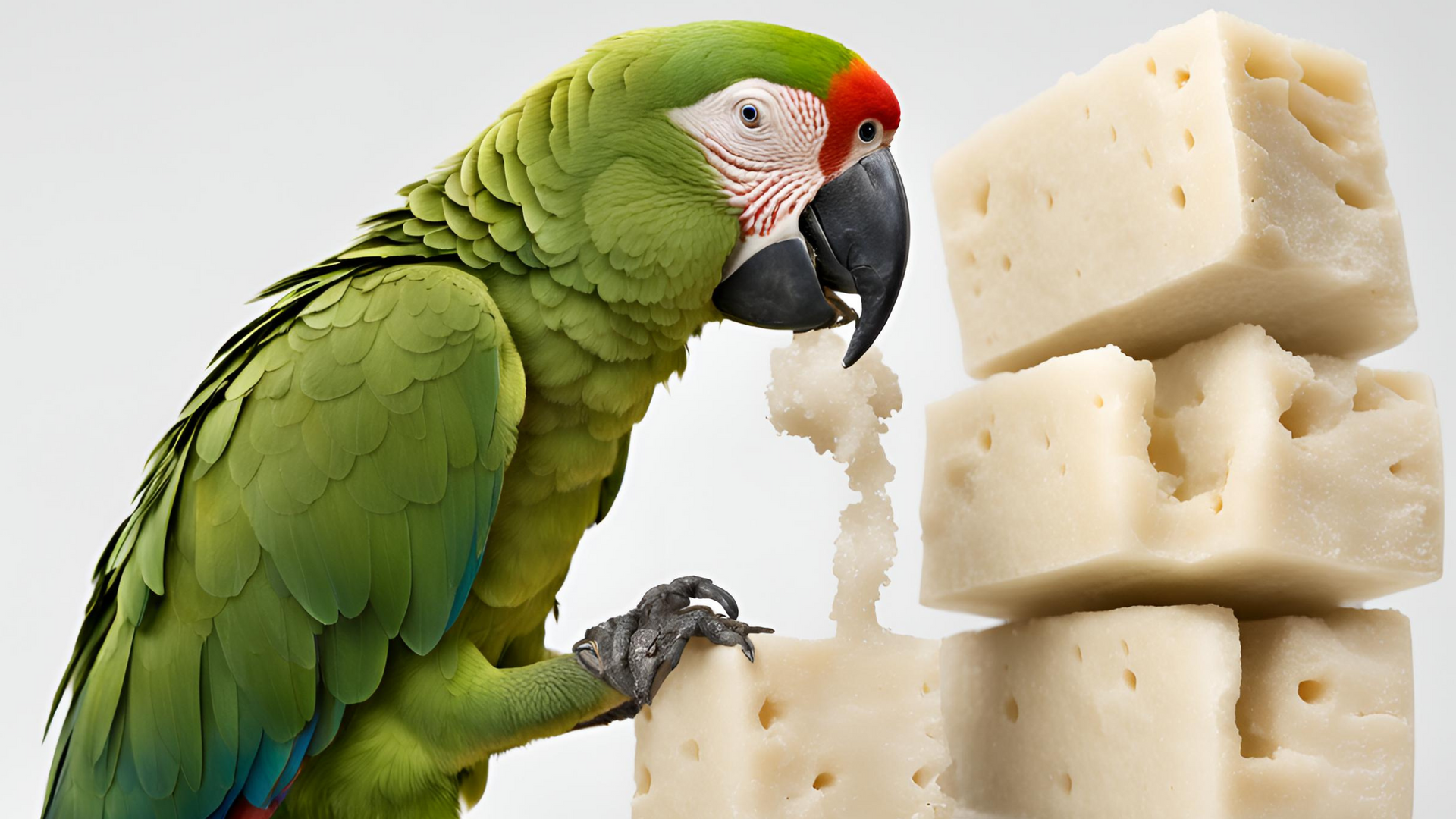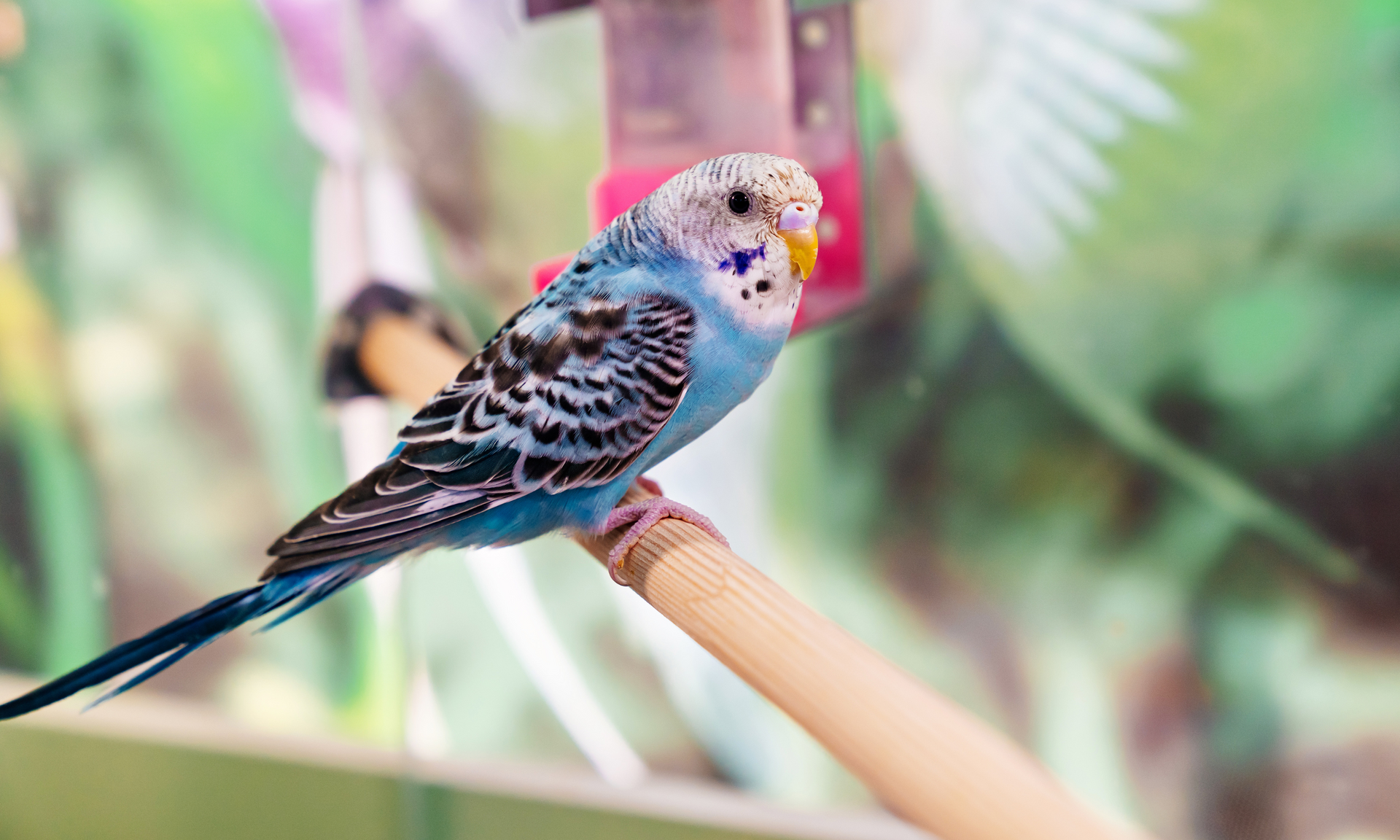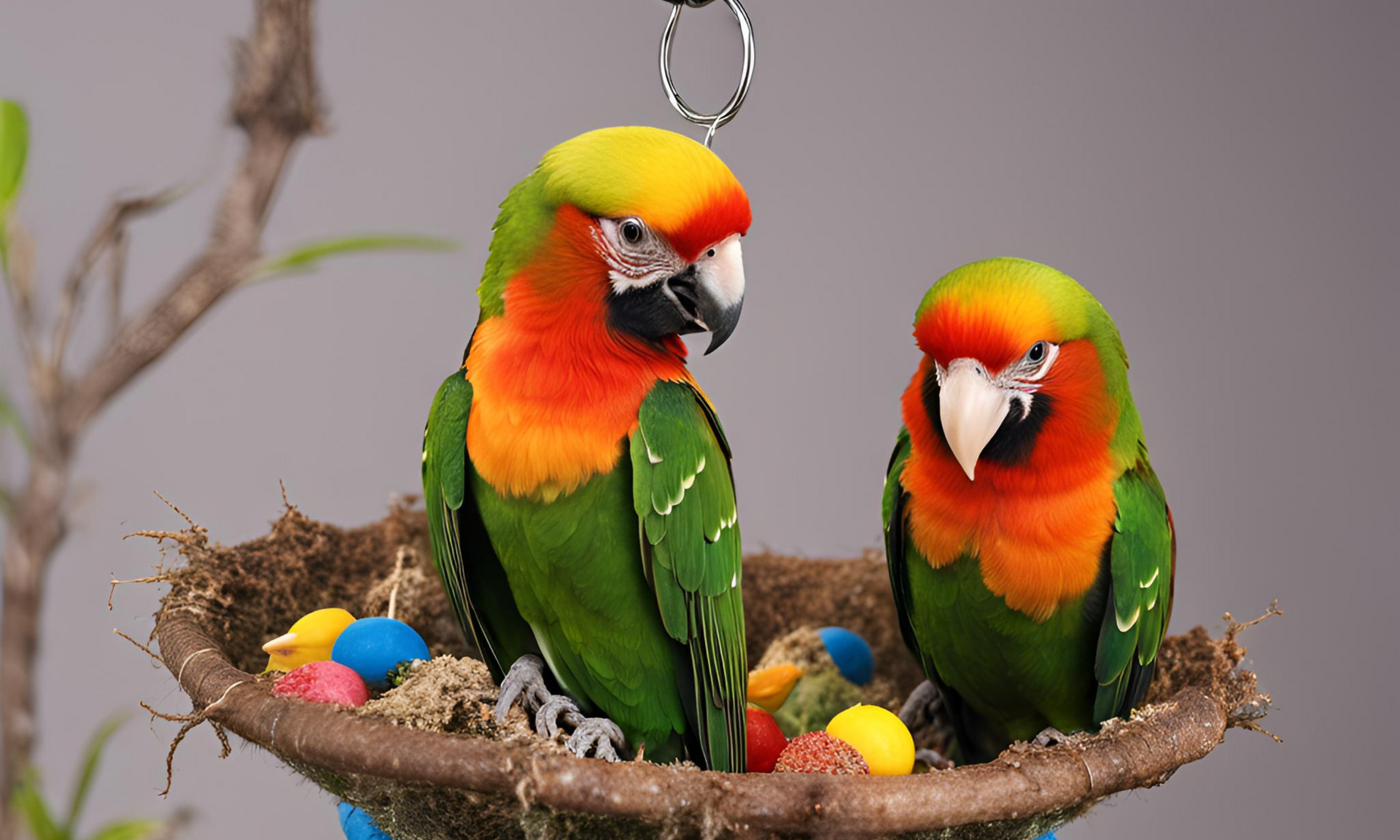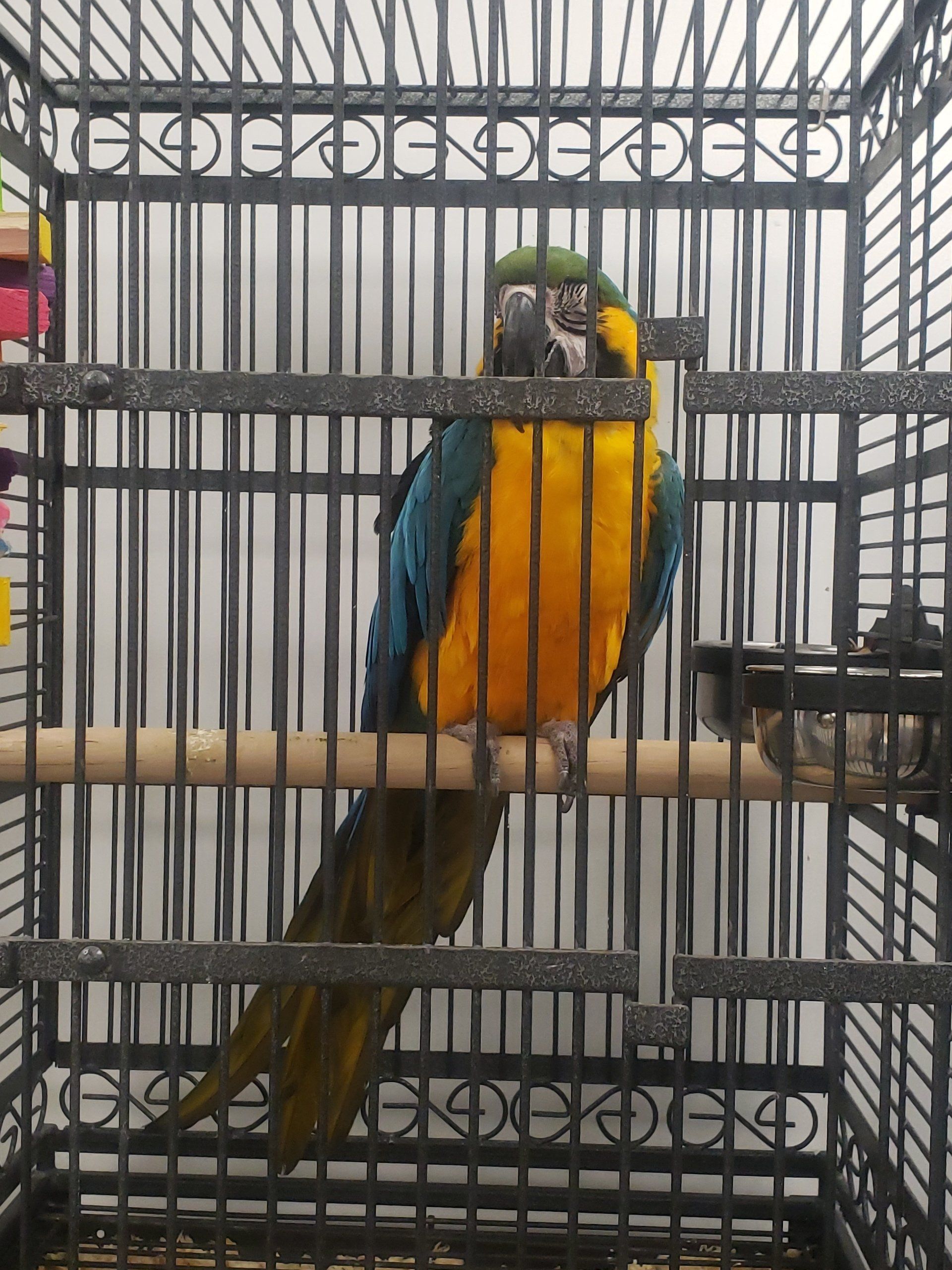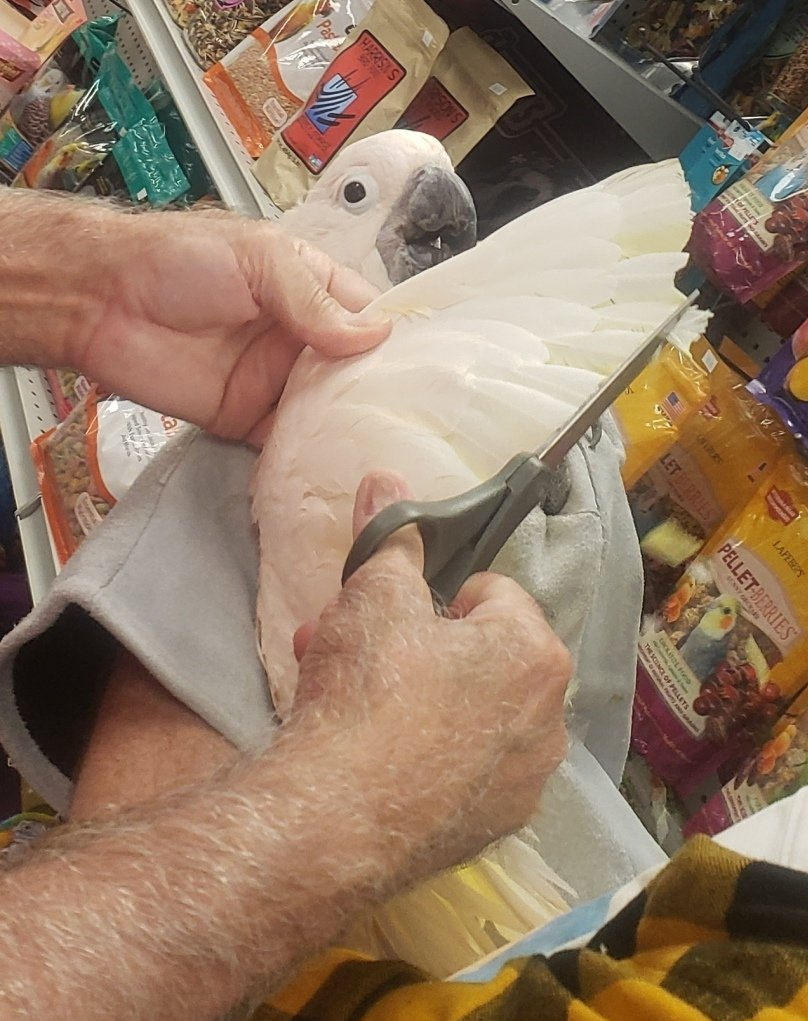“Discover the Joy of Bird ownership!”
Some birds love to be handled, while others are a delight to watch. From talking parrots to birds with beautiful songs, each species has its own charm.
Below is some basic but essential bird information that you will need to know regarding
bird diets, bird behavior, grooming and proper Bird Habitats.
Please remember the following guidelines for housing birds:
- Birds should be housed in a spacious cage, especially those that will spend most or all of their time inside.
- The cage should allow birds to stretch their wings, flap them without obstruction, and make short flights. Horizontal bars are essential for birds that enjoy climbing, such as Parakeets, cockatiels, and parrots.
- Ensure that the spacing of the bars is small enough to prevent the bird from getting its head through. Metal bars are suitable for birds that like to chew.
- It's better if the cage is easy to clean. Many cages come with a slide-out tray and a removable grate for this purpose.
- When placing the cage, ensure it is in a draft-free, well-lit area, avoiding direct sunlight.
- To provide comfort and security, position the cage against a wall or in a corner, and at eye level if hung from the ceiling.
Bird Behaviorist
Remember that it is important to remain patient and consistent when dealing with Birds that are misbehaving.
Bird Behaviorist can help with you with many bird behavior problems some of these include:
When responding to negative behavior don't:
- Ignore negative behavior
- Be very expressive
- Speak softly: Keep your tone of voice low but not loud when you tell your bird that it has done wrong. (short and sweet)
- Place your bird on his cage or perch
Our Bird Behaviorist Terri Laveroni is an avid bird lover and has over over 20 years of experience as a certified Bird Behaviorist, and can assist you with disruptive bird behaviors as well as assit you with determining the sex of your bird, we are trained in DNA sexing and surgical sexing methods.
Call to make an appointment for an in-house consultation at First Flight exotic Birds (631) 732-1494.
When birds are biting
Not every solution works for all birds. Factors include why the bird is biting, its personality and breed, the environment, and other considerations. Learning the cues, language, and personality of the bird can help.
Watch for changes in behavior like flashing eyes and sounds. This is a helpful tool in understanding birds and improving your relationship with them.
Why do they bite?
- Aggression
- Excitement
- Fear
- Hunger / thirst
- Playfulness
- Restlessness (need to go potty or just change scene)
- sleepiness
Birds often signal before biting. Some react aggressively to finger pointing, or reaching out too quickly after a warning. Lovebirds, cockatiels, and other smaller birds may perceive human gestures as threats due to their limited vision. Being cautious when offering affection can help prevent bites.
Being cautious with head or neck scratches can prevent bites, as birds can't see well in front of them and may perceive fingers as threats due to their limited vision.
Aggressive bites may stem from property defense, manipulation, or an inner child demanding its way.
Resolving these requires active participation. Communicate unacceptable behavior to the parrot effectively to encourage positive responses and behavior modifications. Reinforce scolding from the favorite person to deter biting towards others and prevent rivalry. Address biting issues by bonding with the bird before involving others for better control. Slowly reintroduce interactions to prevent further biting incidents.
For more information about birds biting call First Flight Exotic Birds.
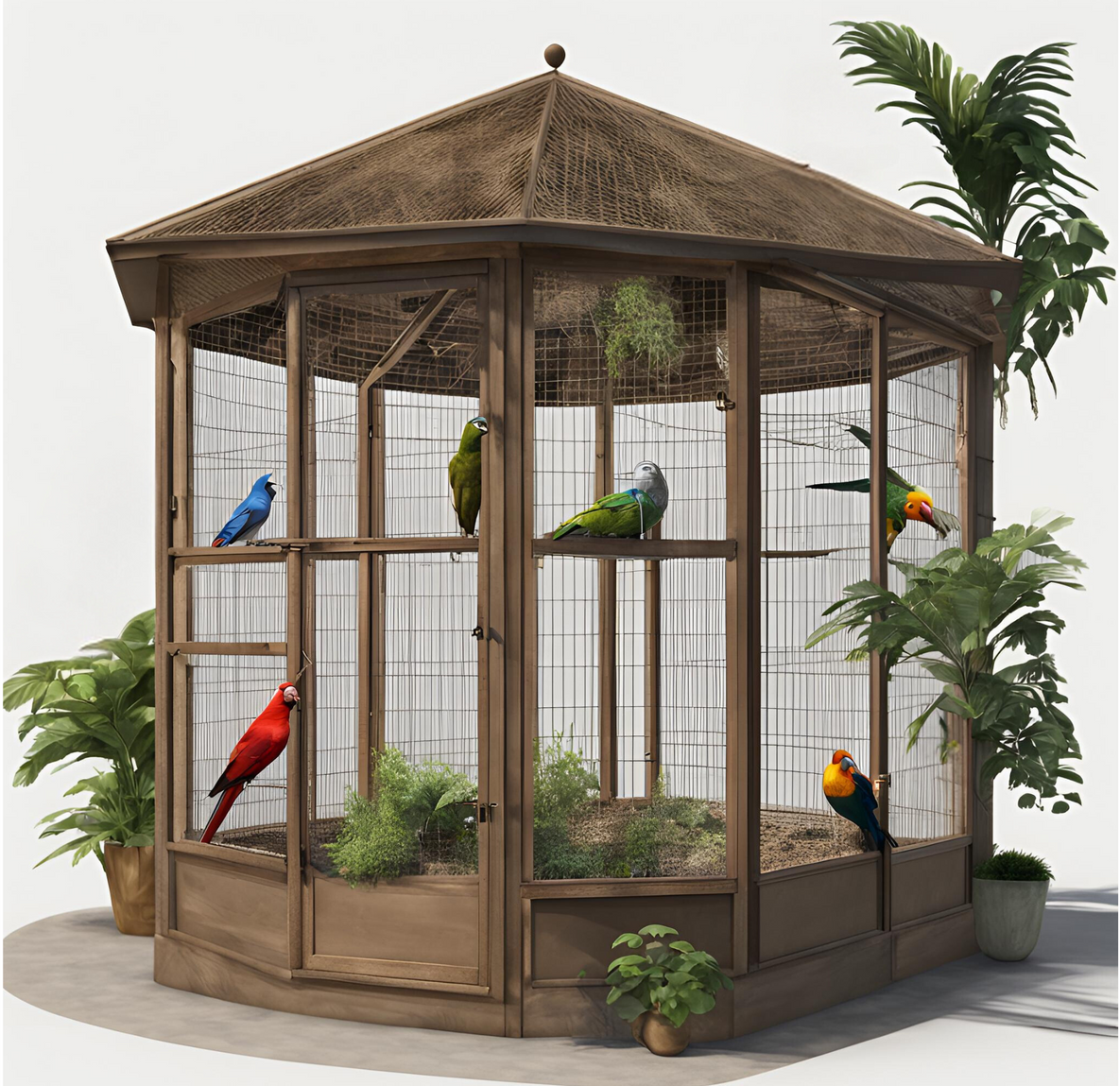
Indoor aviaries: give you the ability to control temperature, lighting, noise, and humidity. Commonly, an indoor aviary is a dedicated room in a home for birds.
The windows are covered with wire, and the door often has a wired porch with two doors to pass through to prevent the birds from flying out.
Some indoor aviaries are simply a bird room with extra-large cages, eliminating the need for screened doors and windows.
Aviary Living
Aviaries are beneficial in providing large areas for birds, often with the intent of breeding. Aviaries can be either indoors or outdoors.
Some birds are very noisy and can be a nuisance to close neighbors.
So if your birds are loud, you may want to keep them in an indoor aviary or in a remote area.
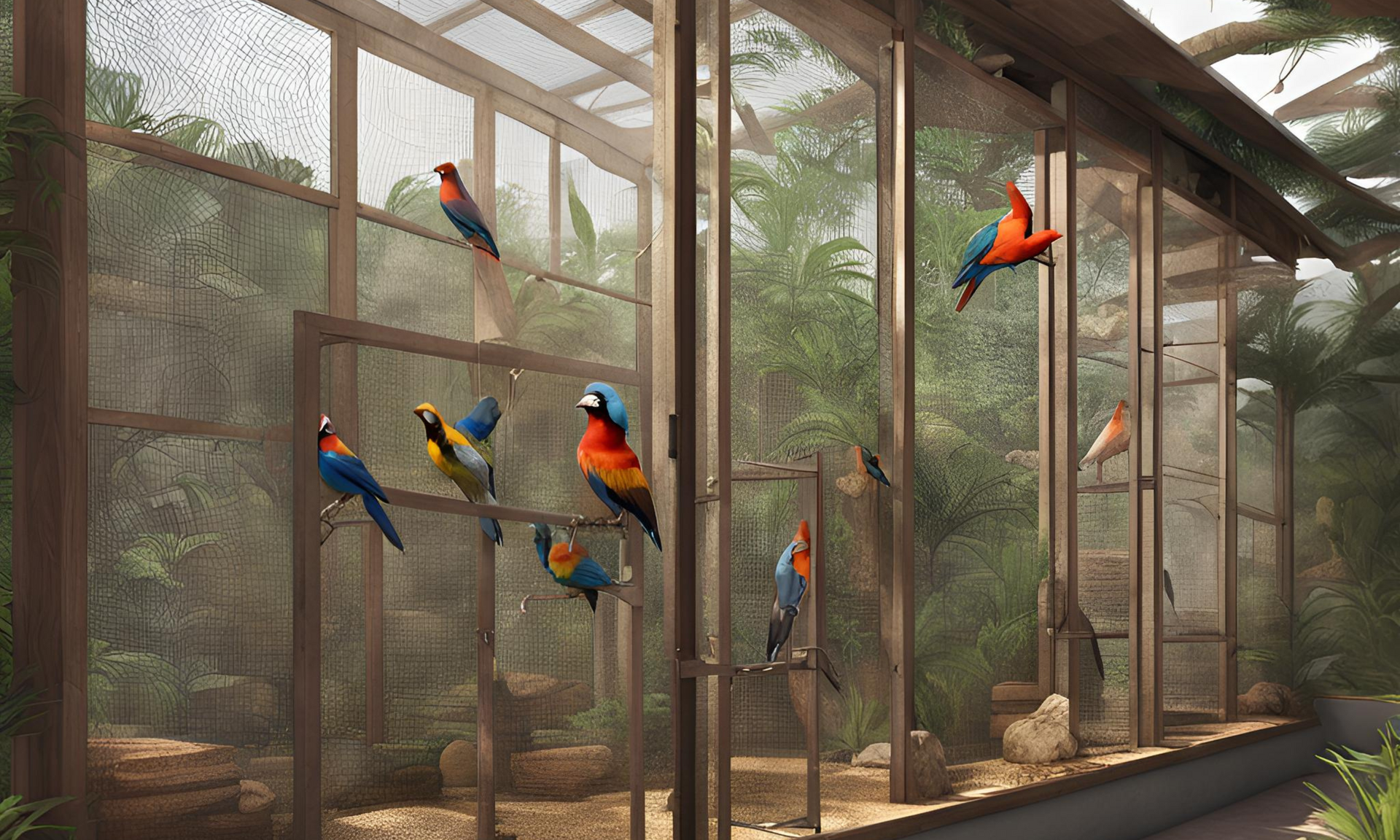
Outdoor Aviaries: can provide your birds with a natural environment and come in a wide variety of styles.
Since the birds are exposed to the weather, they must have indoor sheltering that may need to be heated or cooled if conditions become extreme.
Outdoor aviaries always need a shaded area and wind breaks. Trees or large branches can be incorporated to create a comfortable home, but they must be made of non-toxic woods.
